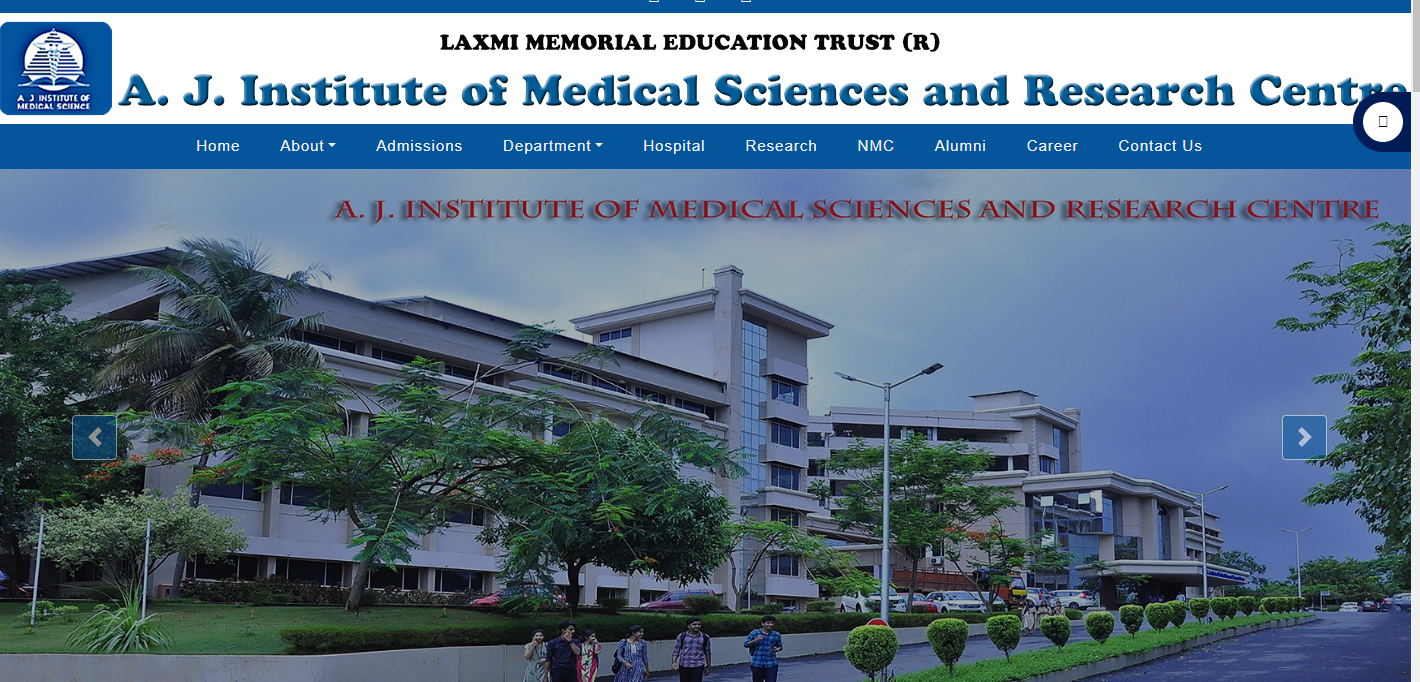Sree Uthradom Thiurnal Academy of Medical Sciences,Trivandrum

- Read more about Sree Uthradom Thiurnal Academy of Medical Sciences,Trivandrum
- Log in to post comments
- 164 views
Sree Gokulam Medical College Trust & Research Foundation, Trivandrum

Sree Gokulam Medical College is the brainchild of our Chairman, Sree Gokulam Gopalan, a multifaceted, inspiring visionary and a philanthropic entrepreneur, recognised as one of the brightest luminaries in the contemporary business world.
Understanding the relevance of education and the significance of health, specially in the rural underserved areas, he undertook establishing this institution in Venjaramoodu in the year 2004.
- Read more about Sree Gokulam Medical College Trust & Research Foundation, Trivandrum
- Log in to post comments
- 157 views
A J Institute of Medical Sciences & Research Centre, Mangalore

The promoting body of all the Medical & Para Medical Instituitions is Laxmi Memorial Education Trust (R.).The Trust being a Family Trust was registered in the year 1991 in the memory of Late. Laxmi Shetty, mother of Mr. A.J Shetty, who is the President and Managing Director of the Trust. The Trust is accorded the recognition of linguistic minority trust by the Government of Karnataka.
- Read more about A J Institute of Medical Sciences & Research Centre, Mangalore
- Log in to post comments
- 91 views
Are all people with negative blood groups descended from aliens?

According to the scientists, if the blood group of a human is negative, then its ancestors were not of this earth, but were antigens, scientists have made a big and shocking disclosure about human blood in one of their discoveries. According to this shocking revelation of scientists, if the blood group of a human is negative, then its ancestors were not of this earth, but were migrants. Had come to this earth and gave birth to children through the women of this earth. People with blood group negatives are descendants of these same migrants.
- Read more about Are all people with negative blood groups descended from aliens?
- Log in to post comments
- 44 views
Heart Valves Made in Minutes

- Read more about Heart Valves Made in Minutes
- Log in to post comments
- 2 views
Flexible Knee Wearable Tracks Motion

Researchers at the Singapore University of Technology and Design have created a flexible knee wearable that contains integrated circuitry within its knitted structure. The wearable can track joint movement in real time, assisting clinicians in spotting the early signs of movement disorders or allowing them to track the progress of patients undergoing physical therapy to improve their movement.
- Read more about Flexible Knee Wearable Tracks Motion
- Log in to post comments
- 3 views
Foodborne diseases Impact
Every year, nearly one in 10 people around the world fall ill after eating contaminated food, leading to over 420 000 deaths. Children are disproportionately affected, with 125 000 deaths every year in people under 5 years of age. The majority of these cases are caused by diarrhoeal diseases. Other serious consequences of foodborne diseases include kidney and liver failure, brain and neural disorders, reactive arthritis, cancer, and death.
- Read more about Foodborne diseases Impact
- Log in to post comments
- 16 views








